
Travel trends 2026: The rise of ultra-personalised journeys
19:05 | 23/03/2025 23:18 | 12/12/2025Tourism
Jeju - May 2025.
The sea breeze of Jeju brings with it a bittersweet scent—subtle, bracing, and unmistakably nostalgic. The vibrant golden hue of Jeju’s tangerines has faded since January, but their flavor lingers, much like the questions occupying the minds of the 21 APEC trade ministers assembled here.
The global trade system: headwinds and fractures
In an unexpected parallel, Netflix has just released When Life Gives You Tangerines, a quiet, contemplative drama set in Jeju. It tells the intertwined stories of a woman who leaves the city for the countryside, a grieving widower, and a young girl forbidden from pursuing her dream of painting. There’s no melodrama, just slow, silent moment's of healing through sunlight, smiles, and the sweet-sour bite of a tangerine.
 |
| The Korean drama "When Life Gives You Tangerines" received the attention of a large audience in Vietnam and internationally. |
For many APEC delegates watching the drama during the summit, it hit close to home. The global trade system, too, is wounded—fragmented and fraying. And like the characters in the drama, perhaps the world is searching for its own tangerine: A symbol of healing.
At the opening session of APEC 2025, the economic forecast delivered a sobering blow. Growth across the 21 member economies is expected to slump to 2.6% in 2025 and 2.7% in 2026, a sharp drop from 3.6% in 2024. The culprits: escalating trade tensions and mounting policy uncertainty. Investment is dwindling, and supply chains are in disarray.
Tellingly, this year’s summit zeroes in on two of the most sensitive global topics: Artificial Intelligence and trade. AI is advancing rapidly without a unified legal framework, while global trade is splintering. Faith in multilateral institutions—especially the WTO—is eroding.
What the world needs now is not just growth at all costs, but responsible, ethical, healing development.
Vietnam at APEC 2025: Quiet confidence and steady resolve
The APEC Ministers Responsible for Trade (MRT) Meeting took place over May 15–16 in Jeju. Minister of Industry and Trade, Nguyen Hong Dien, arrived with a packed schedule—partly planned, partly spontaneous.
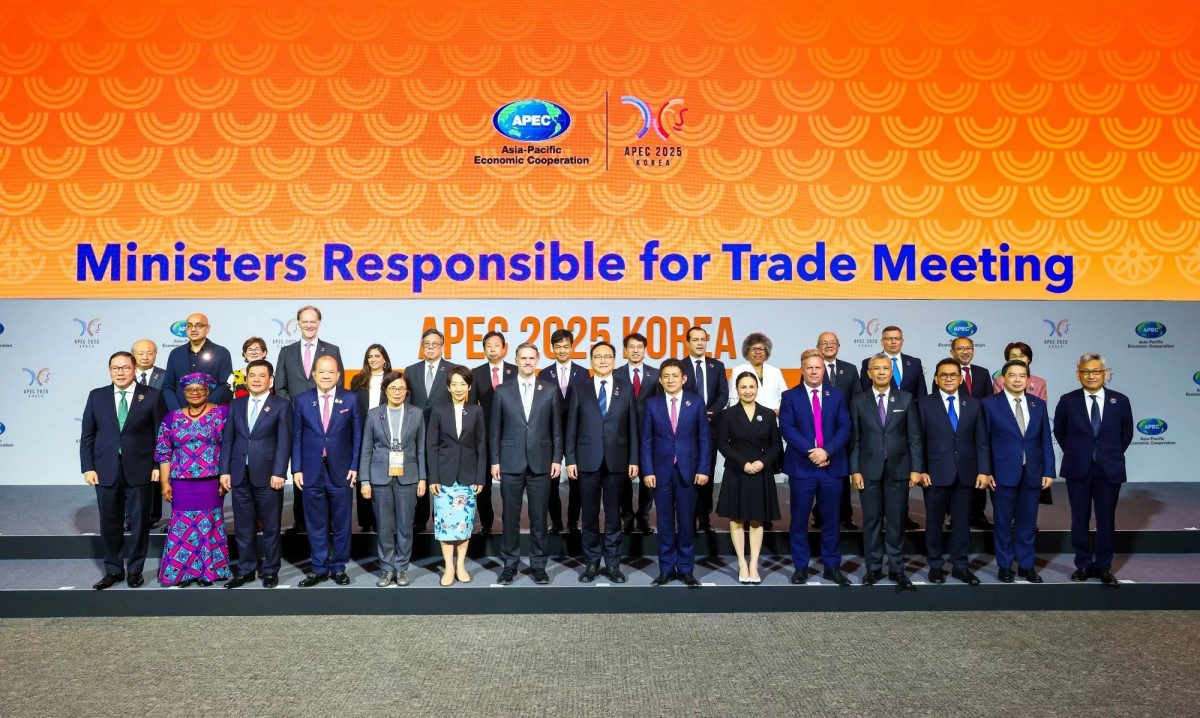 |
| On May 15 and 16, Minister of Industry and Trade Nguyen Hong Dien was present in Jeju with a busy schedule. In the photo are the APEC Ministers Responsible for Trade attending APEC 2025. |
On the morning of May 15, at the request of the United States, Minister Dien met with the US -APEC Business Coalition, whose members include giants like Google, Microsoft, Citi, Mastercard, UPS, and Novelis. Later that day, at the WTO’s initiative, he held talks with Director-General Ngozi Okonjo-Iweala. The high-level engagements speak volumes about Vietnam’s growing stature in global trade discussions.
Throughout the day, Minister Dien also met with Republic of Korea's Minister of Trade, Japan’s Vice Minister of Foreign Affairs, and Chile’s Vice Minister of Trade. He attended the ASEAN-APEC Ministerial Caucus and engaged in multiple bilateral meetings.
On May 16, his schedule remained intense. He participated in the CPTPP Ministerial Meeting on the sidelines of APEC MRT, met with China's Vice Minister of Commerce, and concluded with a bilateral session with US Trade Representative Jamieson Greer.
Despite the volume of meetings, a singular message ran through them all: dialogue over confrontation; negotiation over retaliation; and healing over abandonment.
Vietnam’s policy direction: Practical, progressive, and principled
In the first APEC MRT session, focused on AI and sustainable development, Minister Dien emphasized AI’s potential to boost e-commerce by breaking language barriers and cutting transaction and discovery costs—ultimately lowering business expenses and enhancing global market access.
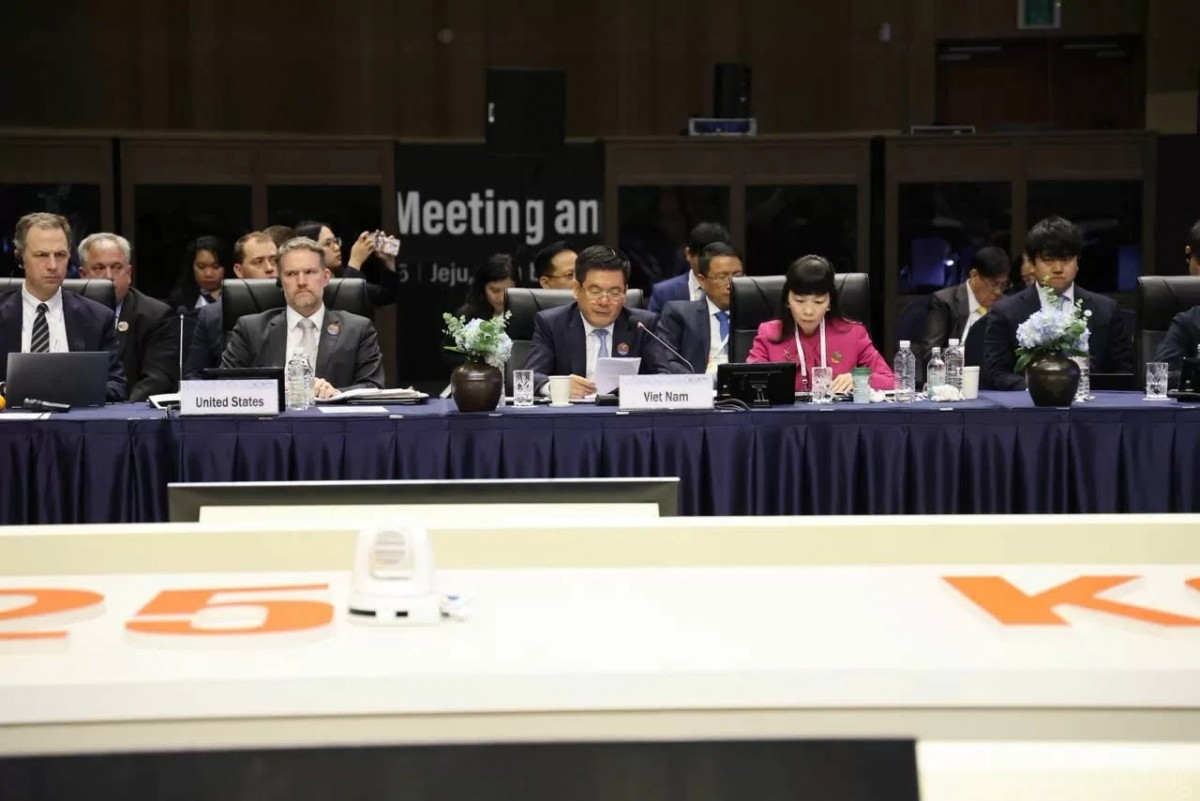 |
| Minister Nguyen Hong Dien spoke at the first session, emphasizing APEC's role in considering and addressing risks and challenges to ensure no one is left behind. |
Vietnam expressed strong support for the APEC AI Initiative, themed “Building a Sustainable Tomorrow with AI: Driving Creative Economic Growth Across the Asia-Pacific.” Minister Dien cited Vietnam’s National AI Strategy through 2030 as a cornerstone of the country’s commitment.
In the second session, as the opening speaker, the Minister called on APEC to remain a pioneer in openness and reform. “We must work together to strengthen and modernize the WTO,” he stated, “including restoring and upgrading its dispute settlement system and pushing forward key negotiations in areas such as e-commerce and fisheries subsidies.”
He concluded firmly: “Vietnam is steadfast in its commitment to the multilateral trading system. We are ready to work with all APEC economies to ensure trade remains a powerful driver of peace, prosperity, and shared development.”
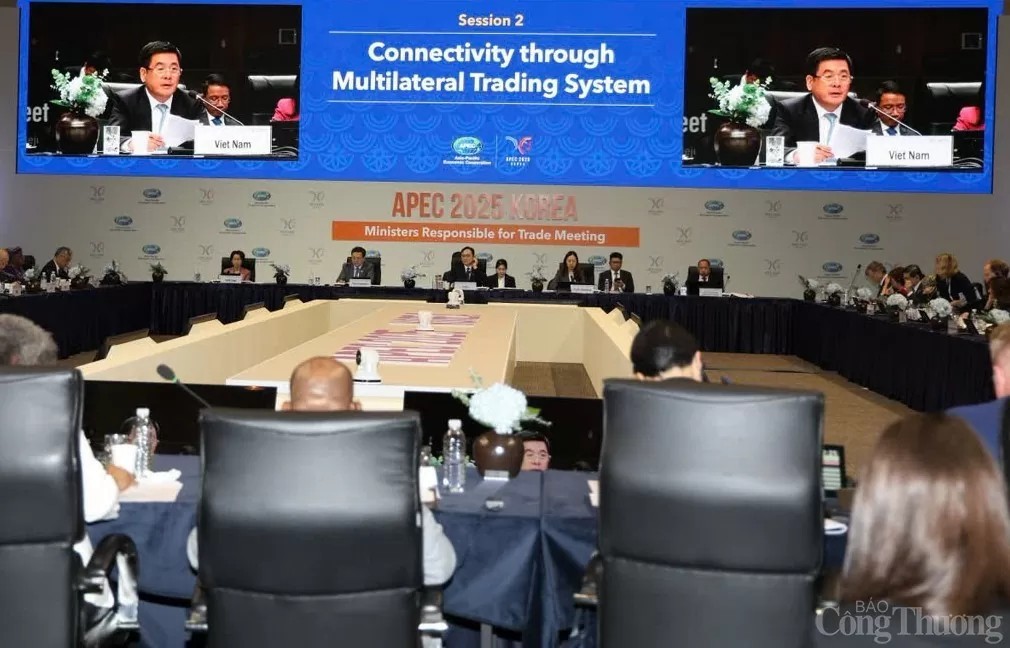 |
| Minister Nguyen Hong Dien spoke at the second discussion session, emphasizing that APEC needs to continue to be a pioneer in cooperation, an incubator of new ideas and initiatives to support the multilateral trading system. |
The third session focused on “Shared Prosperity Through Sustainable Trade,” where ministers voiced deep concern over growing disruptions in global supply chains—caused by trade rivalries, geopolitical conflicts, and climate change.
Consensus emerged around the need to maintain and improve sustainable supply chains as a key to long-term regional prosperity. Minister Dien shared Vietnam’s policies aimed at helping businesses integrate more effectively into these chains and reiterated Vietnam’s dedication to supporting the private sector in fostering a conducive environment for sustainable growth.
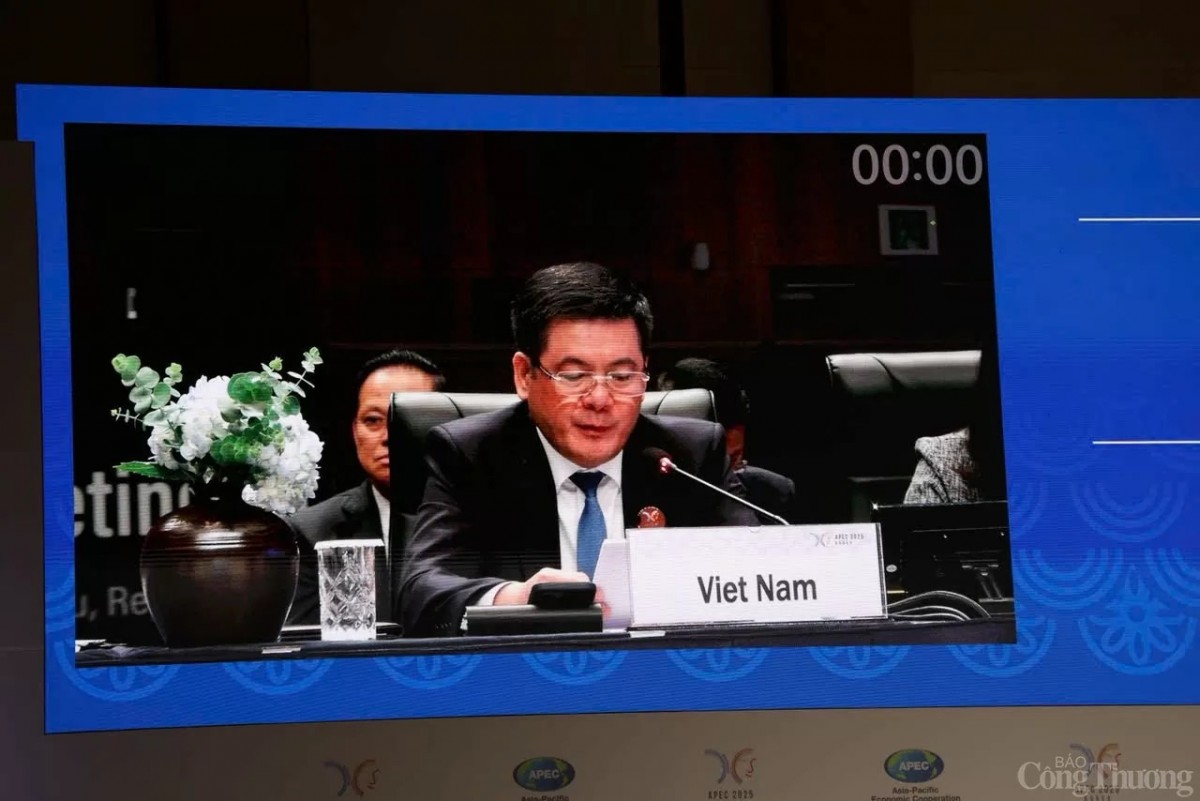 |
| In the third session, Minister Nguyen Hong Dien spoke and shared his views on developing prosperity through sustainable trade. |
Vietnam’s contributions weren’t just rhetoric. Behind them were two landmark Politburo resolutions forming the backbone of its strategic vision: Resolution 57 on science, technology, innovation, and digital transformation; and Resolution 59 on international integration. These are Vietnam’s high-level policy instruments aligning directly with APEC 2025’s two themes: AI and global trade.
In bilateral talks, Japan’s Vice Minister Miyaji Takuma praised Vietnam’s foresight, noting not only that the country is on the right path—but that it is ahead of the curve in its strategic preparation.
The tangerine season ends, but the dream of healing persists
Throughout the summit, Jeju tangerines were offered at coffee breaks—a simple gesture, yet full of meaning. Delegates may not have said it aloud, but their expressions revealed a shared sentiment: the fruit symbolized more than just local flavor. It embodied kindness, culture, and a gentler form of commerce.
The Republic of Korea had already promoted its tangerines through Netflix. Trade, it seems, is not only about agreements. It’s about emotion, trust, and real connection.
The conference closed on a calmer note, though concern still flickered in the eyes of delegates departing Jeju. A joint statement was adopted. No walkouts. No dissents.
It may not have been a summit of grand breakthroughs. But perhaps that’s what healing looks like: recognizing the wounds, avoiding blame, and sitting down together—like Jeju’s farmers with their tangerines—quietly, sincerely, and with quiet persistence.
Vietnam did not speak the loudest at this year’s APEC. But perhaps, in this fading tangerine season, the country left behind the sweetest aftertaste.
Global trade may not be transformed overnight. But if enough people are willing to share one tangerine—like the delegates of APEC did—perhaps there is still hope that the system can heal.

19:05 | 23/03/2025 23:18 | 12/12/2025Tourism
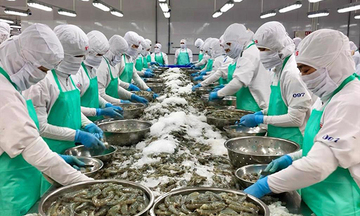
19:05 | 23/03/2025 23:04 | 12/12/2025Trade
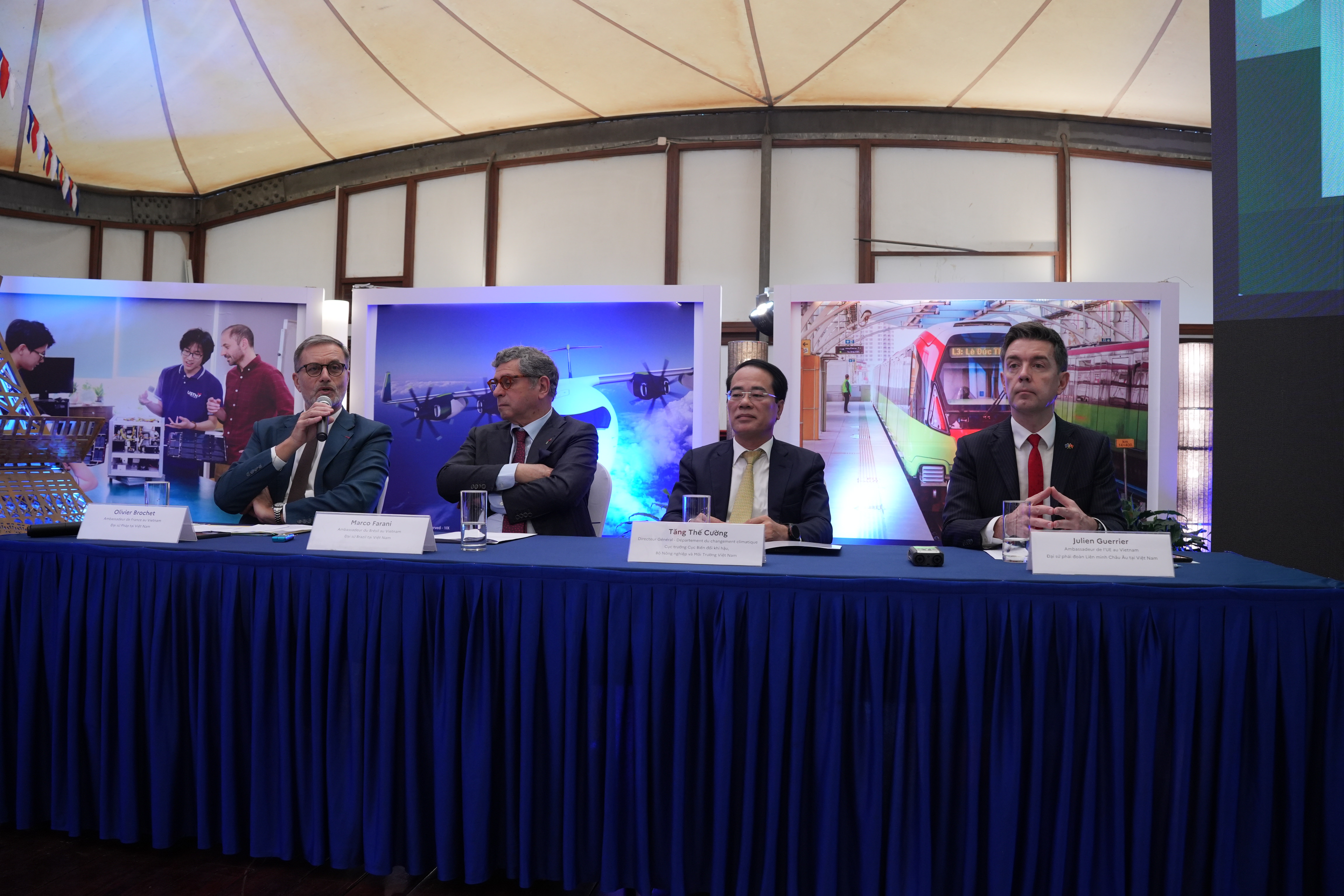
19:05 | 23/03/2025 23:00 | 12/12/2025Society
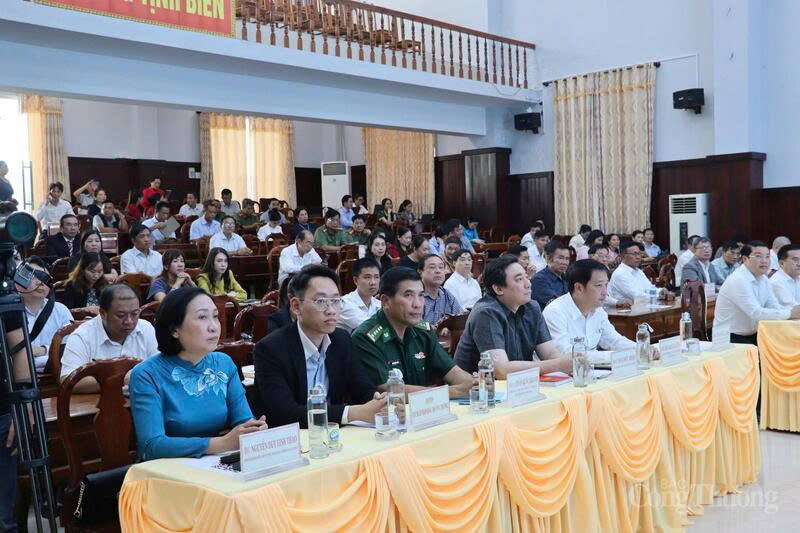
19:05 | 23/03/2025 19:39 | 12/12/2025Trade
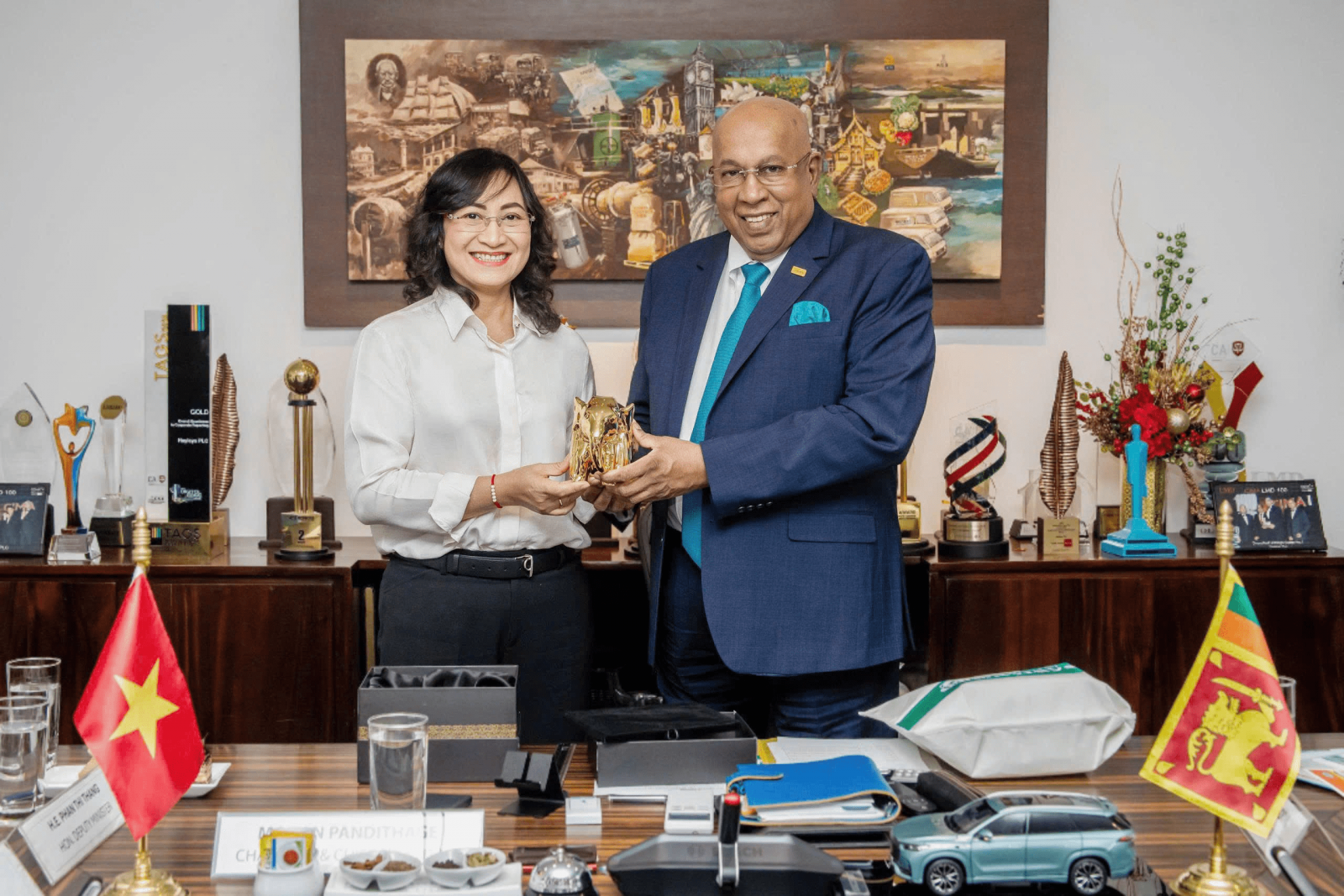
19:05 | 23/03/2025 19:37 | 12/12/2025News and Events